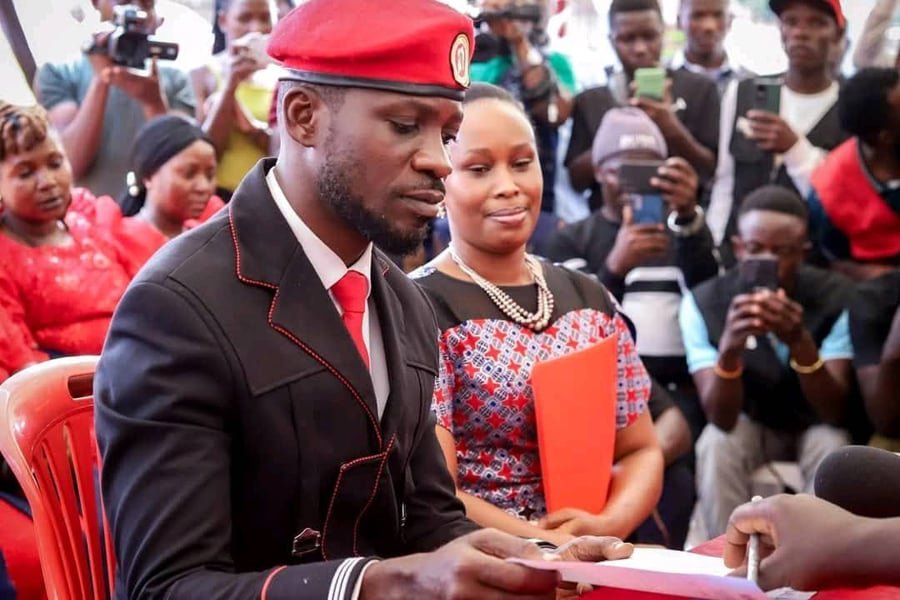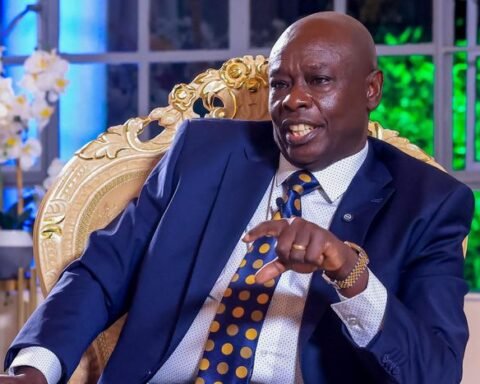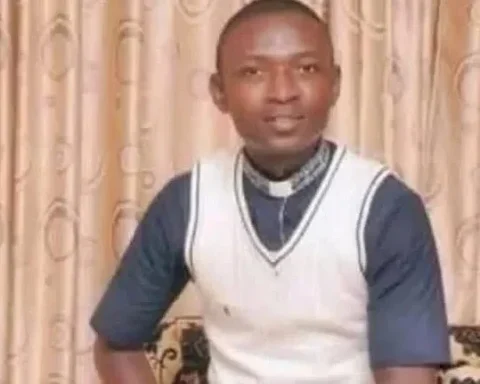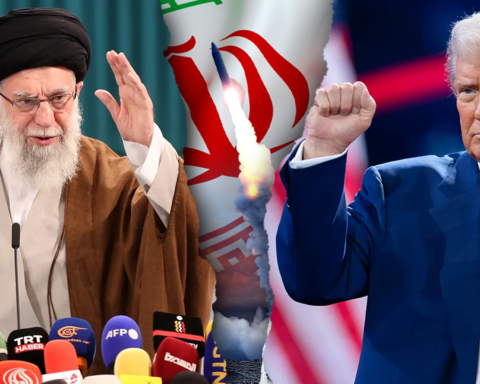Opposition leader Robert Kyagulanyi Ssentamu, better known as Bobi Wine, has once again stepped into Uganda’s political spotlight, confirming his candidacy for the upcoming 2026 presidential election scheduled for January.
The announcement came after senior officials from his party, the National Unity Platform (NUP), collected nomination forms on his behalf from the country’s Electoral Commission. The delegation included the Leader of Opposition in Parliament, Joel Ssenyonyi, Secretary General David Rubongoya, and National Treasurer Benjamin Katana.
Speaking to reporters shortly after, Ssenyonyi emphasized that the campaign will run under the slogan “New Uganda Now”, a theme designed to inspire hope and encourage citizens to turn out in large numbers to vote. He described their vision of “a Uganda where hospitals offer quality healthcare, roads are in good condition, and children access excellent education.”
This is Bobi Wine’s second attempt to unseat President Yoweri Museveni, who has been in power since 1986 and is widely expected to seek re-election. In the 2021 race, Bobi Wine finished second with more than 3.4 million votes, about 34.8 percent of the total ballots cast, but rejected the results, alleging irregularities and intimidation.
Also Read; Trump-Putin Summit Seeks Ukraine Conflict Resolution
NUP leaders say their strategy for 2026 is built on mobilizing the youth, who make up the majority of Uganda’s population, as well as addressing long-standing frustrations over corruption, unemployment, and what they describe as shrinking democratic space. Rubongoya noted that the party views the campaign as both an electoral contest and a peaceful protest against decades of entrenched leadership.
The political climate, however, remains tense. Bobi Wine has accused security forces of harassment and warned that the environment leading up to the election is becoming increasingly hostile. International observers are expected to keep a close eye on the process, given Uganda’s history of disputed elections and allegations of human rights abuses.
As the January vote approaches, Uganda is bracing for another high-stakes contest that pits a youthful opposition movement against the country’s long-serving leader. Whether Bobi Wine can convert growing public discontent into a decisive political victory remains to be seen, but his entry into the race ensures that the path to 2026 will be one of the most closely watched political stories on the continent.







